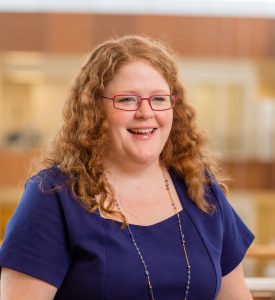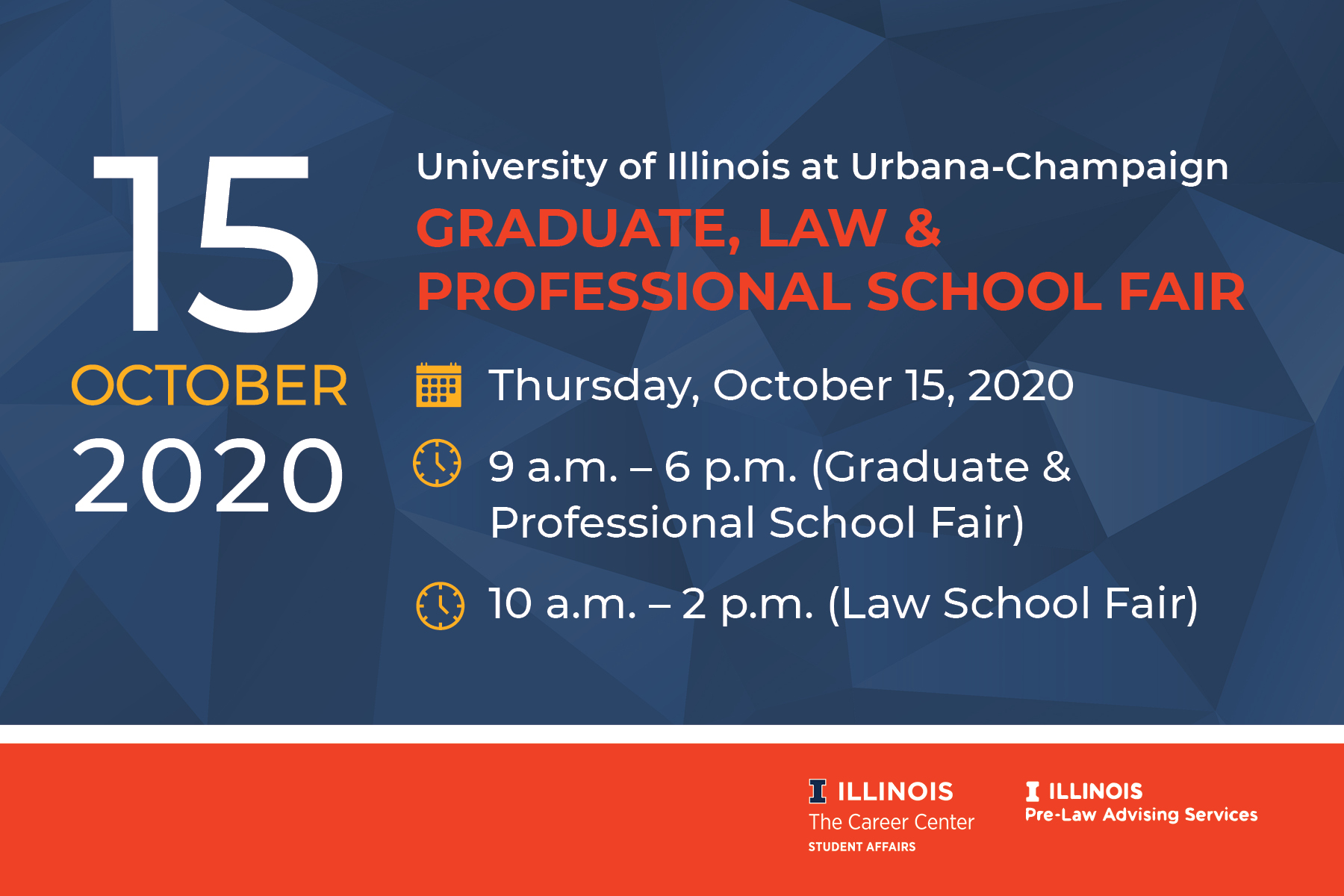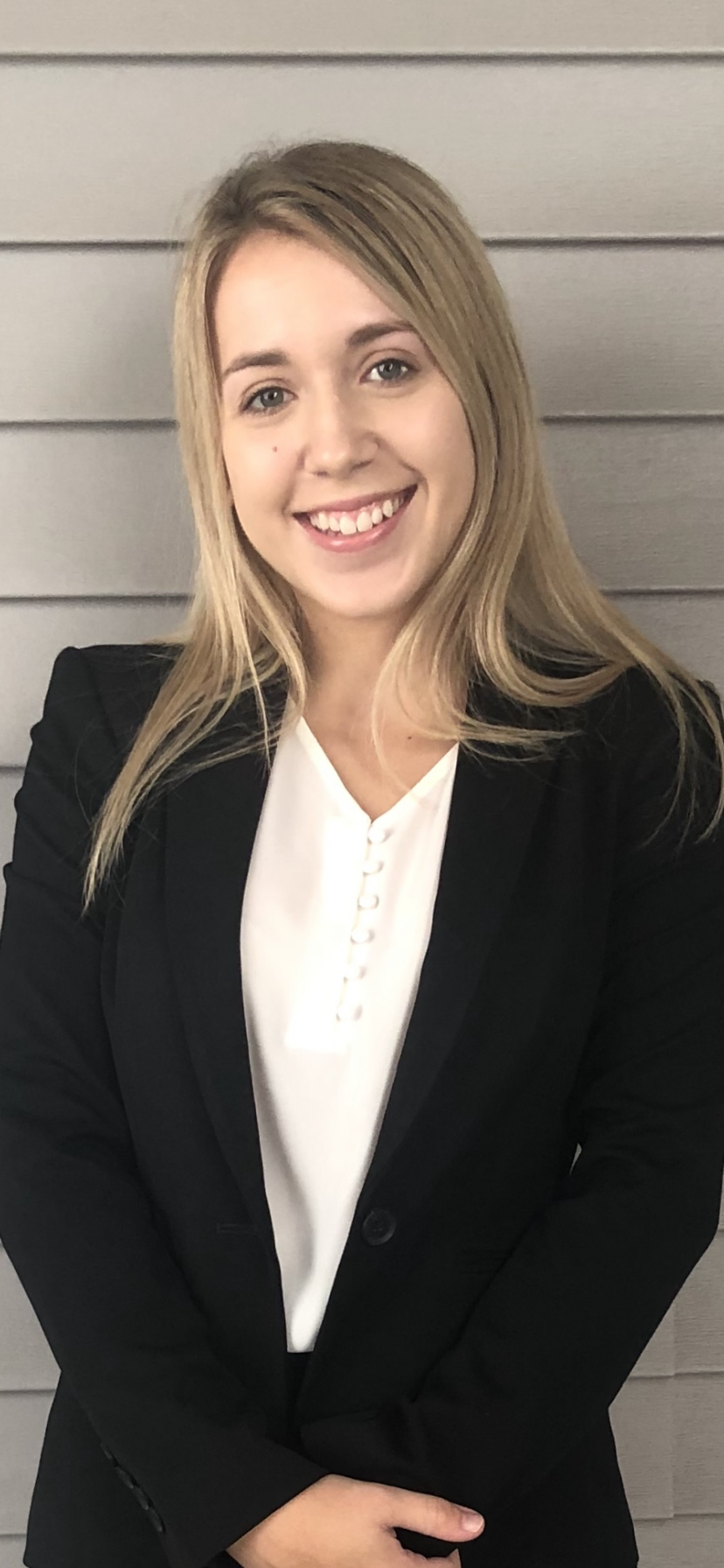 Perspectives from an Admissions Dean: This week’s guest blogger is
Perspectives from an Admissions Dean: This week’s guest blogger is
Dean Rebecca Ray, Assistant Dean for Admissions & Financial Aid at the University of Illinois College of Law!
University of Illinois College of Law Snapshot*:
-
- Total JD Enrollment: 399
- First Year Class Size: 130
- Median LSAT/GPA: 162/3.7
- Application Deadline: March 15, 2021
- Website: www.law.illinois.edu
*The enrollment and profile data given above are as of October 5, 2019. Data for Fall 2020 will be finalized October 5, 2020.
Why did you decide to attend law school?
I grew up knowing that I wanted to go to law school. My father and uncle are both lawyers, so I had plenty of exposure to the practice of law before deciding to go to law school. I worked in my father’s law office during the summers while in undergrad. In undergrad, I considered a number of other careers, including teaching, higher ed, and psychology. Ultimately, however, I felt if I didn’t go to law school, I would regret it, given that it had been such a long-held goal.
Why did you decide to make a role in law school admissions part of your career?
I get asked this question a lot! I loved the practice of law, but my heart has always been in higher education. I really value the energy that undergraduate and graduate students bring to their education, and I love playing even a small role in that.
During my undergrad years, I worked in my university’s registrar’s office. I thoroughly enjoyed that job. The registrar at that time had a JD. I strongly considered going on to get a master’s in higher education, as opposed to law school. Given that one of my mentors worked in higher education with a JD, however, it seemed like a natural fit to continue on my original path to go to law school. You can be in higher ed with a JD; you cannot practice law with a masters in higher education. The JD seemed to allow me more flexibility if/when my career goals evolved. My personal statement was actually about wanting to eventually work in higher ed!
When the job at Illinois Law became available, the timing was honestly perfect. Both professionally and personally, I was ready for a change and the opportunity to work for my alma mater was too good to pass up.
What are the hallmark qualities of a legal education from the University of Illinois College of Law?
There are four words/phrases I would immediately ascribe to an Illinois Law education: Flexible, Practical, Community, and Outstanding Teaching.
Flexible: While the first year curriculum at Illinois Law is prescribed, almost everything beyond that is entirely up to the student. Illinois Law students are encouraged to explore their legal interests and are not pigeon-holed into a practical area of law (unless, of course, they want to be!). I sometimes describe this as “traditional, broad-based legal education,” but that implies stodginess. It’s not stodgy at all. Students can take traditional larger courses like Bankruptcy Law or Federal Income Tax, while also taking small seminars on Judicial Opinion Writing or Race and Policing. The flexible nature of our curriculum allows our students to hone all facets of their legal interests and become well-rounded attorneys.
Practical: Illinois Law students are trained to be ready to practice. What that looks like may vary from student to student, but ultimately, you will leave the law school with the skills to be a successful lawyer. That includes externship and clinical opportunities, learning about the business of law firms in Fundamentals of Legal Practice, or participating in a number of networking and mock interview programs with our outstanding alumni.
Community: While I placed this third on the list, it’s probably the word I hear the most about Illinois Law. There are many tropes about the competitive nature of law school, but our students treat each other with respect — as future colleagues — and form life-long friendships. Our students want to be successful and they are driven, but not at the expense of their future classmates.
Outstanding Teaching: I had to cheat and make this a phrase, not one word. The faculty at Illinois Law truly care about teaching and it shows. It is difficult to convey in a blog post, but the care and attention the Illinois Law faculty puts into both their scholarship and teaching creates a dynamic and energetic learning environment for the students. There is a purpose behind everything they do in the classroom.
How do students learn more about professional development and career resources, academic programs, and alumni mentorship opportunities at your school?
Our website, law.illinois.edu, has a lot of information about all of these topics. Additionally, we are hosting a virtual event on September 24 at 1:30 pm CST to answer prospective students’ questions. Our Executive Assistant Dean for Career Planning will be present for this event starting at 4:00 pm CST to specifically discuss career planning and professional development. We will be doing a series of similar events, so stay tuned to the events section of our website. I will be sure to let Pre-Law Advising Services know about these events, as well. Law fairs (yes, even virtual ones) are also a great place to get answers to your questions about particular law schools. Finally, prospective students are always welcome to email law-admissions@illinois.edu to ask questions and/or schedule a time to speak with either myself or our Associate Director, Suzanne Rogers. You can also make an appointment to speak with a current student or a member of the Career Planning team. During non-pandemic times, we love to have prospective students visit the College to take a tour of the building and to sit in on a first-year class.
What type of experiential opportunities do your students have during law school?
Our students have many opportunities for experiential learning, both during their summers and during the academic year. Illinois Law offers few, if any, traditional courses over the summer term, so that students can get practical legal experience. In addition to paid legal positions, summer experiences include externships for credit and our Corporate Counsel Practicum. During externships, students do legal work for a government or non-profit entity. We have had students work for the City of Chicago, Champaign State’s Attorney’s Office, just to name two common placements. The summer presents a nice opportunity for students who wish to practice outside of Illinois to get an externship in their desired legal market. The Corporate Counsel Practicum includes a ten-day course before students work in in-house legal departments at major corporations.
During the academic year, students can also do an externship for credit or participate in one of our legal clinics. We have a Family Advocacy Clinic, Federal Civil Rights Clinic, Veterans Legal Clinic, and Immigration Law Clinic. Any one of these clinics presents an opportunity to do real legal work for real people with real problems. You are helping the community and gaining important experience.
What is one of the greatest pitfalls or mistakes that you see in student applications?
Applying on March 15. I say this because the timing of the application is the one thing entirely within the applicant’s control that can absolutely have an effect on the outcome of the decision. By the time you are submitting your application, to a certain extent your GPA and LSAT are fixed quantities, as are the personal experiences that will form the basis of your personal statement and resume. There is very little that someone in September of their senior year of college can do to change these things. However, every year, there are people who apply to Illinois in February or March (or even later), who do not get in, but would have had they submitted their application in November or December. That’s not to say that we do not admit people who apply in February or March, but it becomes more competitive at that point in the cycle.
Are there any traits, experiences, or accomplishments that are common among the most successful applicants?
What stands out about one applicant is going to be different from what stands out about the next applicant. We want to build a class that comes from different backgrounds and has had different life experiences. It enriches the classroom experience. That being said, successful applicants fairly uniformly follow the directions given in the application and it is obvious that time and attention was given to the personal statement and resume. We can tell when a personal statement was written at the last minute or the applicant was otherwise rushed. Take your time, start your application earlier than you think you need to, review it, ask others to review it for you, make any necessary changes, make sure you have given the Committee everything they have asked for, and then submit it. Also, from the personal statements in particular, the most successful applicants can demonstrate that they are passionate about something and that their passion is what is driving them to law school. Law school is too hard and too expensive to not have a reason to want to go.
What are some of the best aspects of living in the Champaign-Urbana community?
It really is the best of both worlds. It’s not a big city, but we have the culture, dining, and other amenities that make big cities attractive, without the hefty price tags. For students in particular, Champaign-Urbana is a great place to study in an enclave, while still having easy access to Chicago, Indianapolis, and St. Louis for both career and recreational purposes. During this COVID time, I have been struck by how fortunate we are to live in a community with a major research institution. The advancements that University researchers have made in such a small amount of time and the global implications of those advancements are truly impressive. We get to benefit from that research right here in the cornfields.
What is something unique about your law school that many people don’t know?
The ability to attend law school in a college town with a research university AND have access to the third largest legal market in the country (Chicago) is relatively unique among US law schools. Our Chicago Program is a new innovation that plays to our strength in the Chicago legal market. Second semester 3L students can take their classes in Chicago, while doing an externship for credit or working for a law firm. It’s a wonderful bridge between academic life here in Champaign-Urbana and professional life in an urban setting.
Many students are worried about Covid-19 and how it has affected legal education, the application process, and their own personal circumstances. What would you tell a student concerned about applying to law school this fall?
First, know that admissions professionals are well-aware of the hurdles in the application process due to COVID. At Illinois Law, we will not view an LSAT-Flex score differently than a traditional LSAT administration, particularly for students applying to start law school Fall 2021. Similarly, most universities went to some variation of pass/fail for the spring 2020 semester, so that also will not be held against you when you apply to Illinois Law. Second, if you have concerns about online or hybrid legal education, ask to speak to a current law student (preferably a 2L or 3L who has been through more than one semester and has experienced both in-person and virtual learning). You should get a good sense of how well the process worked for a particular school. Finally, only the applicant can decide whether their personal circumstances would warrant waiting to apply once the pandemic is over. We have worked very hard to continue offering a first-rate legal education, but for some students it may not be the right time to go to law school and that’s okay. Take the time to get some professional work experience and round out your application.
Given the restrictions on events, traveling, and in-person interactions due to Covid-19, how can students continue to connect with law schools and determine if a school is the right fit for them? Are there any special programs at your school students should know about?
I mentioned this in response to a question above, but take advantage of the virtual events. The University of Illinois is having a virtual graduate and professional fair, which will include law schools. The LSAC virtual forums should also be a wonderful way to learn about schools from across the country. The LSAC virtual forums will feature resource “rooms,” where you can ask questions regarding financial aid, diversity, or general applications questions. Don’t be bashful about emailing the law schools you are interested in (don’t just cc all law schools on a message, though) and asking to speak with a student or an admissions professional, if they have any virtual events coming up, or if you can view a virtual class. We have all learned to be flexible in this time and can find a creative way for you to get to know us!








